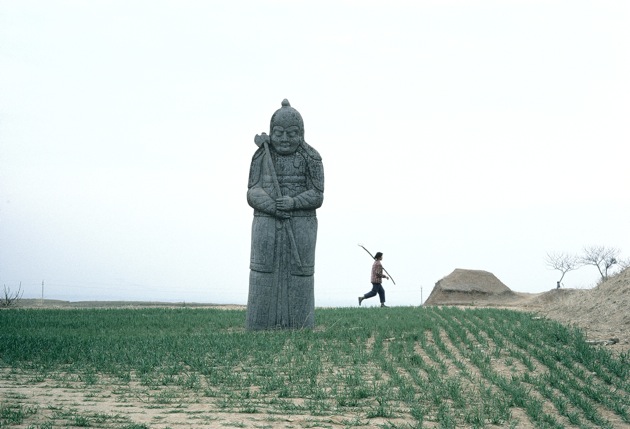Kafka’s “A Message From the Emperor” made its first appearance in the Prague Zionist journal Die Selbstwehr (“Self-defense”) in September 1919, the year the thirty-six-year-old Kafka composed his famous letter to his father. Hauntingly oblique, the story weaves together child-like hopefulness and stoical resignation, metaphysical yearning and psychological insight, a seemingly Chinese tale and covert Jewish themes. When the composer Martin Bresnick asked me for a new version that he could set to music, I was mindful of the fact that Kafka often read his stories aloud with the “rhythmic sweep, dramatic fire, and a spontaneity such as no actor achieves” (Max Brod). I wanted to create a text that could be read aloud in English since the very sound of Kafka’s German and the pattern of his syntax evoke the at-first unimpeded progress of the emperor’s messenger and then the obstacles that begin to clog his path.
—Mark Harman
A Message from the Emperor
The emperor—it is said—sent to you, the one apart, the wretched subject, the tiny shadow that fled far, far from the imperial sun, precisely to you he sent a message from his deathbed. He bade the messenger kneel by his bed, and whispered the message in his ear. So greatly did he cherish it that he had him repeat it into his ear. With a nod of his head he confirmed the accuracy of the messenger’s words. And before the entire spectatorship of his death—all obstructing walls have been torn down and the great figures of the empire stand in a ring upon the broad, soaring exterior stairways—before all these he dispatched the messenger. The messenger set out at once; a strong, an indefatigable man; thrusting forward now this arm, now the other, he cleared a path though the crowd; every time he meets resistance he points to his breast, which bears the sign of the sun; and he moves forward easily, like no other. But the crowds are so vast; their dwellings know no bounds. If open country stretched before him, how he would fly, and indeed you might soon hear the magnificent knocking of his fists on your door. But instead, how uselessly he toils; he is still forcing his way through the chambers of the innermost palace; never will he overcome them; and were he to succeed at this, nothing would be gained: he would have to fight his way down the steps; and were he to succeed at this, nothing would be gained: he would have to cross the courtyard and, after the courtyard, the second enclosing outer palace, and again stairways and courtyards, and again a palace, and so on through thousands of years; and if he were to burst out at last through the outermost gate—but it can never, never happen—before him still lies the royal capital, the middle of the world, piled high in its sediment. Nobody reaches through here, least of all with a message from one who is dead. You, however, sit at your window and dream of the message when evening comes.



